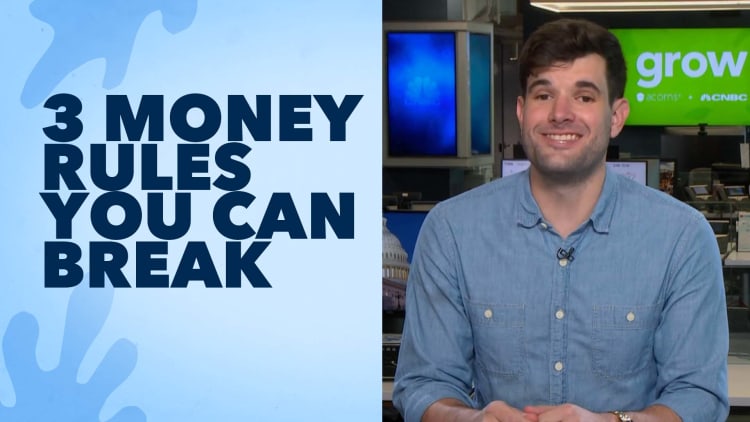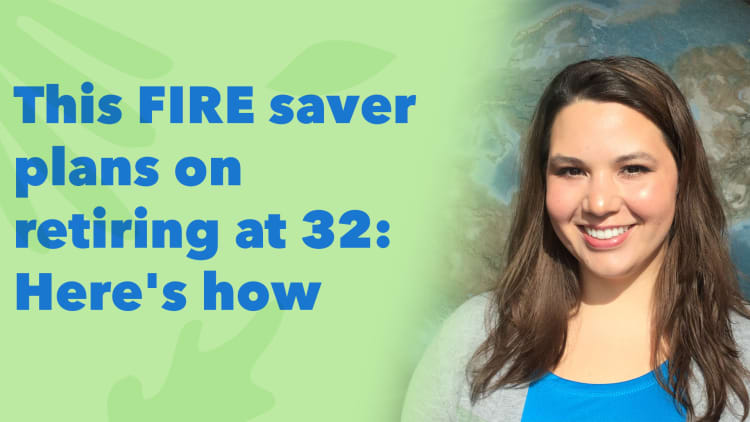Whether you're aiming to retire early or do it the old-fashioned way and call it quits in your 60s, you've likely received advice to start putting money away for your nest egg, like, yesterday. After all, the most powerful asset you have as an investor, the thinking goes, is time. The earlier you invest, the more time you have for the effects of compounding interest to potentially grow the value of your portfolio.
More from Grow:
Make 3 year-end money moves now, according to financial planners
Self-made millionaire: Can retire early? Figure out this number
Warren Buffett: Stock market investing tips for ‘the average person’
But if the answer to "when is the best time to invest" is nearly always "now," it raises another less heralded but equally important question: Where?
The answer depends on when you plan to use the money, say Grant Sabatier, the author of "Financial Freedom" and co-founder of BankBonus.com. "Any money you want to use in the next five years or for a 'mini-retirement' is money you don't want to risk," and may be best left in savings, he says. "Everything else, you invest for the long term."
Here's how he and other experts break it down.

Video by Tala Hadavi
Divvy your long-term money up between tax-advantaged accounts
If you're investing money for the long term, the first vehicle to consider is your workplace retirement account, provided your employer offers a matching contribution, says Sabatier, who is a millionaire and an early retiree. "The No. 1 thing is to invest enough to get the 401(k) match," he says. "That's 100% free money. If they match 50% of your contribution, that's a 50% return."
Once you've put in enough to get the match, the next place to look is a Roth IRA, if you qualify to make contributions. "Then max out your Roth IRA. It comes with tax advantages that other accounts don't offer," Sabatier says.
Namely, tax-free growth. Unlike traditional IRAs and 401(k)s, Roth accounts are funded with money you've already paid taxes on. That means your contributions can't be deducted from your taxable income. But in exchange for giving up the upfront tax break, you can withdraw both your contributions and any earnings from the accounts — provided you're 59½ and have held the account for five years — without paying a dime to Uncle Sam in retirement.
Because they're designed to help low- and middle-income families get a leg up on retirement savings, Roths come with relatively low maximum annual contributions — in 2022, $6,000 for individuals under the age of 50. Depending on your income, the maximum may be less for you, or you may be barred from contributing altogether.
Once you've contributed as much as you can to a Roth, "go back to your 401(k) and max that out," Sabatier says. As noted above, money that you contribute to a 401(k) account can be deducted from your taxable income for the year you invested it. Plus, investing in a 401(k) defers your taxes, meaning you won't owe tax on any earnings or dividends from your investments until you begin withdrawing the money.
Maxing out a 401(k) takes some doing — individuals under 50 can contribute up to $20,500 in 2022. If you've socked away $26,500 toward your retirement and maxed out an IRA and a 401(k), congrats. If you want to invest beyond that, Sabatier recommends using a brokerage account, which is subject to taxes on, for instance, dividend income and capital gains.
How to save or raise cash for short-term goals
If you're investing for a shorter-term goal, such as a funding a down payment on a home or taking a "mini-retirement" (in which you use money you've saved to take a mid-career hiatus from your 9-to-5), your first priority is preserving the value of your money, rather than growing it, experts say.
To that end, you'll likely want to hold the funds in an asset class that's far less jumpy than stocks, which are prone to sharp downturns in the short term that could derail your plans. "If we were having this conversation 30-plus years ago, it would be a no-brainer: Buy CDs," says Peter Palion, a certified financial planner with Master Plan Advisory in East Norwich, New York. "Back then, one-year CDs were paying 10%. That doesn't require a whole lot of thinking."
These days, certificates of deposit don't offer much in the way of interest, and nor do bonds, which are much less volatile than stocks but also stand the chance of eroding in value should interest rates rise. For more aggressive investors, a diversified portfolio of high-quality, short-term bonds offers some return potential with limited sensitivity to movements in rates, says Cody Garrett, a certified financial planner and owner of Measure Twice Financial in Pearland, Texas. "More conservative investors will prefer cash in the bank," he says.

Video by Courtney Stith
Sabatier recommends stashing short-term cash in a high-interest savings account. If you're selling investments, such as bonds, to fund a short-term goal, he says, "It's always best to sell your investments in your brokerage account, which comes with the fewest tax advantages as long as you've held for at least a year."
In doing so, he notes, you're not potentially stunting tax-advantaged growth of money you have earmarked for retirement. But unless you find yourself earning very little income, you'll likely owe tax on whatever you sell from your brokerage account.
If you don't want a tax bill and don't mind depleting your retirement savings, another reasonable strategy is withdrawing funds from your Roth IRA, says Jean Chatzky, CEO of HerMoney.com and host of the HerMoney podcast. "If you get a bonus or a bump in salary, you may want to divert some money toward short-term goals," she says. "Realize that a Roth IRA is a good tool for this, since the principle can be withdrawn any time, tax-free, and be used to pay for that house."
The article "How to Decide Which Investment Accounts to Use for Your Long-Term Money Goals: FIRE millionaire" was originally published on Grow (CNBC + Acorns).



